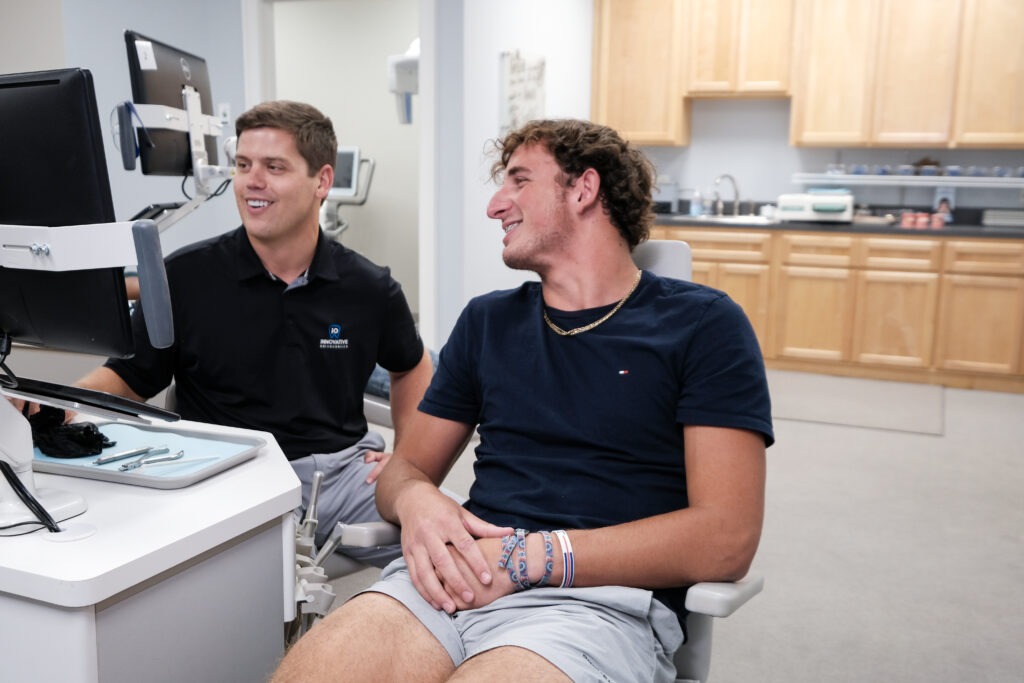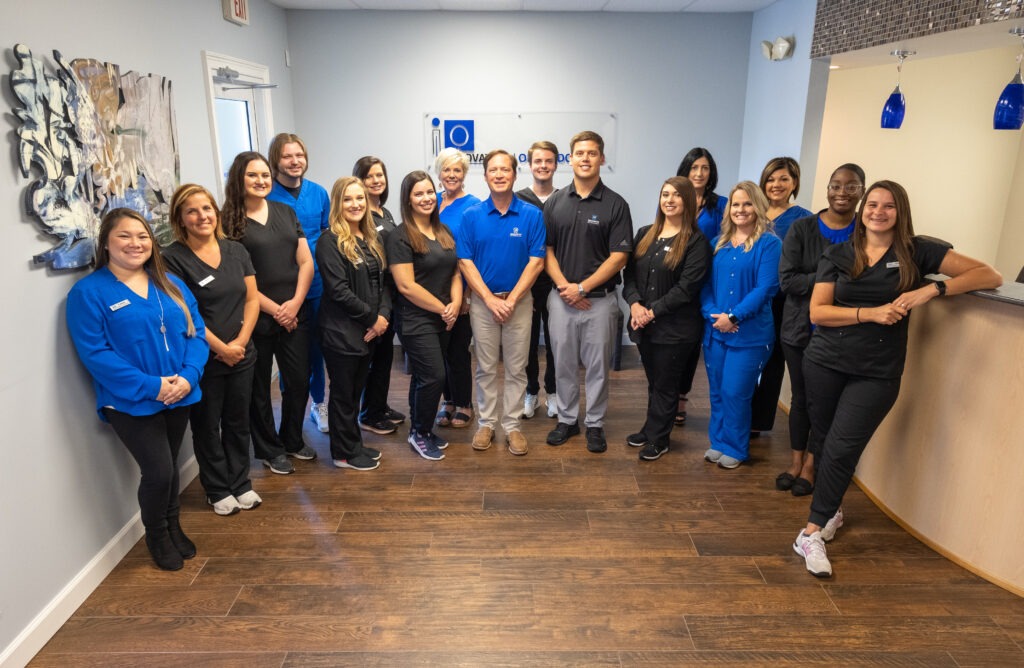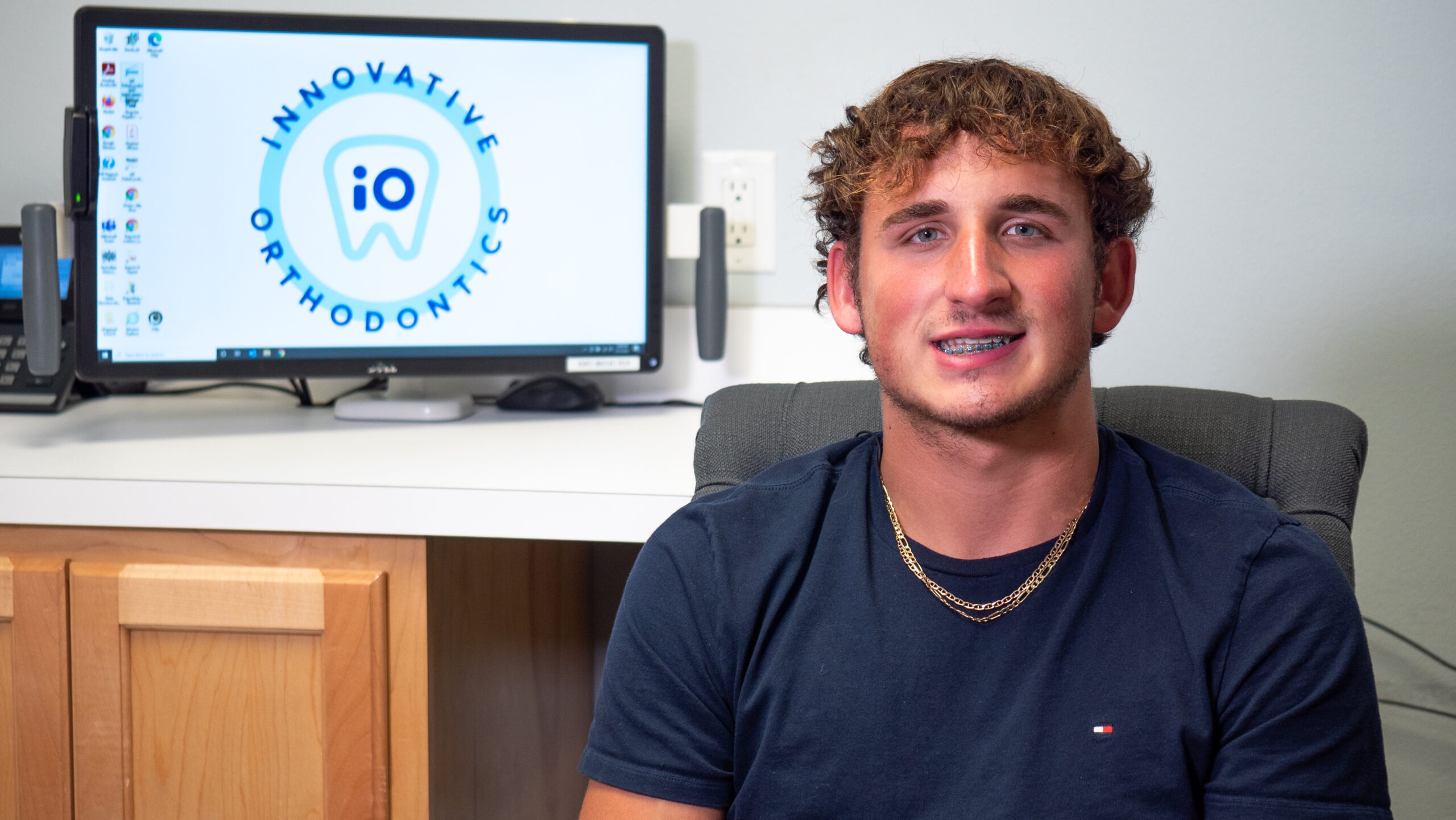If you have a belief that you somehow “missed the window” for braces as a child or a teenager, you’re not alone. But that timeframe being the only option is a complete myth! Today, Innovative Orthodonticswants to explain why adults are good candidates for braces.
Understanding Braces
Before we talk about how they apply to adult patients, let’s talk about braces. They are a method used to correct alignment and bite issues in teeth. There are a few means of achieving this:
- Traditional metal bracesare a common option and by far the most classic. They consist of brackets, wires, and bands that work to shift your teeth or bite into a correction position.
- Clear braceshave brackets made of a ceramic material that offers a more natural effect for patients.
- Invisaligneliminates the need for those traditional components, using plastic trays to slowly alter your smile.
Braces at Different Ages
Even though this treatment is applicable to everyone, it can have different effects based on the age of the patient. We’re going to break it down by age group.
- Children (7-12 Years)
- Early intervention is generally a good thing, since it is able to guide jaw growth and address bite issues as permanent teeth come in. These usually occur in two phases due to that transition into permanent teeth.
- Adolescents (12-18 Years)
- With most permanent teeth in place, we create a comprehensive plan focusing on aligning teeth and correcting bite issues. Clear aligners are usually an option for teenagers, whereas they aren’t for children.
- Adults (18+)
- At this point, it might take a little longer for adult teeth to shift. But braces are still completely effective for adults. For senior patients, additional attention might be paid to age-related changes.

Benefits of Adult Braces
With all of that being said, there are actually some positives to waiting until adulthood for orthodontic treatment.
- Improved Oral Health: Braces are often more for oral health concerns than cosmetic ones. Correction of bite and alignment issues reduce the risk of gum disease, cavities, and jaw pain.
- Enhanced Appearance: But if aesthetics are a major concern, this is obviously a great option to resolve that. A smile you’re happy with can improve your overall confidence and performance.
- Functional Improvements: When teeth are aligned properly, you can chew more effectively and speak more clearly. If you’ve experienced long-term speech issues, braces can be a big help.
- Prevention of Further Damage: Many people’s teeth are worn down by misalignment, causing wear and tear through grinding.
- Jaw Relief: Temporomandibular joint (TMJ) disorders can be alleviated by braces by improving jaw alignment. Patients with these conditions are used to frequent pain and discomfort when not addressed.
- Versatile Treatment Options: Earlier, we talked about the various types of braces. Adults usually aren’t limited to a single option, depending on their condition. This freedom to choose can provide an option that suits lifestyle and aesthetic preferences.
- Personalized Treatment: Adults can actively and independently work with their orthodontists to create an ideal treatment plan bespoke to their desired outcomes while addressing specific concerns.
- Increased Accessibility: Over the years, adult braces have become a far more mainstream form of treatment, making it more socially acceptable.
Additional Questions
We expect you to have questions—everyone does! Dr. Waters, Dr. Clayton, and our whole teamare at your service to answer them. Here are a few that might arise prior to consultation:
- Can I still get braces with issues like cavities or gum disease?
It’s advisable to address these types of issues beforehand. We often collaborate with general dentists to add this treatment to the broader treatment plan.
- What about dental work, like crowns and bridges?
Having this manner of work doesn’t strictly exclude you from braces, but your solution will depend on what we assess. We always tailor your treatment with these variables in mind.
- Will having braces cause me to miss any work or social events?
People generally adjust to braces quite quickly. It’s not remotely the same as an actual operation, like wisdom teeth extraction. While some minor discomfort might be expected, it shouldn’t withhold you from your normal lifestyle, for the most part.
- How do you handle orthodontic emergencies?
If it’s especially serious, it’s important to get medical attention right away. But for minor damage to your appliance, orthodontic wax can be used in the intervals between visits to our office, where we can arrange for a repair in a timely manner. Our team can explain more about emergency approaches when you’re in the office.

No Time Like the Present
So yes—whatever age you are, you are probably a great candidate for braces. If this type of treatment is something you’ve been contemplating for a long while, we encourage you to visit us for a free consultation at one of our offices: Savannah(912-800-0294), Rincon(912-800-0267), and Pooler(912-800-0541).

